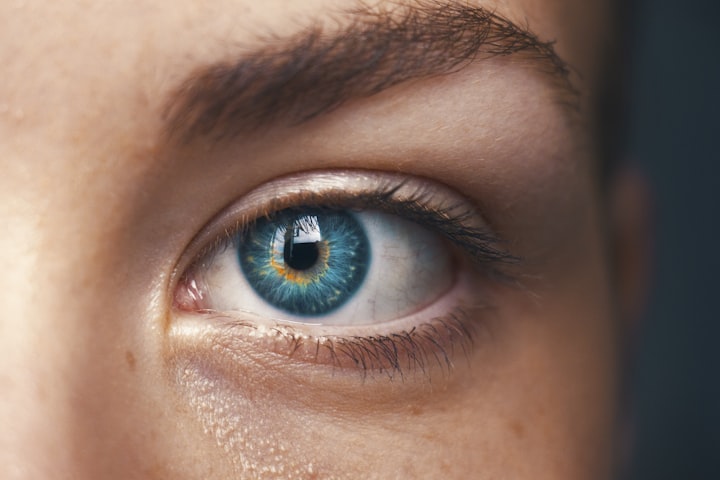Debunking Vision Myths
Separating Fact from Fiction

As a writer who delves into medical topics, I recently immersed myself in the intriguing realm of vision myths. This journey led me to an enlightening video featuring Dr. Ronnie Banik, a board-certified ophthalmologist and neuro-ophthalmologist, along with Dr. Jennifer Sci, an optometrist specializing in medical and aesthetic eye care. Together, they expertly navigated through a series of common misconceptions surrounding vision and eye health. Allow me to share my insights and debunk these myths after thorough research and careful consideration of their explanations.
Myth #1: "20/20 Vision Equals Perfect Vision"
Contrary to popular belief, achieving 20/20 vision does not equate to flawless eyesight. While the term "20/20" denotes clarity in visual acuity at a distance of 20 feet, it overlooks other crucial aspects of vision, such as color perception, peripheral vision, and contrast sensitivity. Dr. Banik and Dr. Sci underscored the importance of considering these factors beyond mere eye chart readings. Thus, while 20/20 vision is desirable, it does not encompass the entirety of visual health.
Myth #2: "Blue Light Causes Irreversible Eye Damage"
The notion that blue light exposure leads to permanent eye damage gained traction from a misinterpreted study. In reality, our eyes possess natural defenses, namely lutein and zeaxanthin pigments, which shield against excessive blue light. While prolonged exposure to screens may disrupt sleep patterns, there is no conclusive evidence linking it to irreversible eye harm. Dr. Banik and Dr. Sci emphasized the importance of balanced information, dispelling fears surrounding blue light without dismissing the significance of eye protection measures, such as specialized coatings on glasses.
Myth #3: "Vision Deteriorates Linearly with Age"
The assumption that vision inevitably declines with age oversimplifies the complex nature of ocular changes. While presbyopia—a condition impairing near vision—typically emerges in middle age, it does not herald a uniform deterioration in visual acuity. Moreover, individuals may experience fluctuations in refractive errors over time, with some even achieving improved vision due to eye elongation. Dr. Banik and Dr. Sci highlighted the variability in age-related visual changes, urging regular eye examinations to address evolving needs effectively.
Myth #4: "LASIK Guarantees Permanent Freedom from Glasses"
LASIK surgery offers remarkable vision correction, but it does not guarantee lifelong freedom from glasses. Despite resetting refractive errors, LASIK does not prevent age-related changes or presbyopia onset. Patients must recognize the possibility of regression or the need for reading glasses post-surgery. Dr. Banik and Dr. Sci underscored the importance of realistic expectations and thorough discussions with surgeons to assess candidacy and understand potential outcomes.
Myth #5: "Color Blindness Renders the World in Monochrome"
Contrary to the misconception that color blindness reduces vision to grayscale, it predominantly affects red-green color discrimination. Individuals with color deficiency perceive hues differently rather than lacking color vision entirely. Dr. Banik and Dr. Sci elucidated the genetic underpinnings of color perception, debunking the myth of monochromatic vision and emphasizing the prevalence of color deficiency in the population.
Myth #6: "Eye Exercises Can Improve Vision"
The belief in the efficacy of eye exercises for vision enhancement lacks scientific basis. While the 20-20-20 rule promotes ocular rest and reduces strain, it does not alter refractive errors or correct underlying conditions. Dr. Banik and Dr. Sci cautioned against misconceptions surrounding eye exercise regimens, advocating for evidence-based approaches to vision care instead.
Myth #7: "Wearing Glasses Will Weaken Your Vision"
Dispelling the notion of glasses-induced vision deterioration, Dr. Banik and Dr. Sci clarified that corrective lenses do not weaken eyesight. Rather, they provide optical correction, enhancing visual clarity without influencing the natural progression of refractive errors. Patients should embrace prescribed eyewear as a means of improving visual function without fear of exacerbating ocular conditions.
Myth #8: "Dry Eyes Are Insignificant"
While dry eyes may seem innocuous, they can lead to complications if left untreated. Reduced blink rates during screen use contribute to evaporative dryness, highlighting the importance of lubrication and blink completeness. Dr. Banik and Dr. Sci emphasized proactive management of dry eye symptoms to prevent potential corneal damage and maintain ocular health.
Myth #9: "Sneezing with Eyes Open Causes Eye Displacement"
The myth of sneezing-induced eye displacement stems from a misunderstanding of ocular anatomy and reflexive responses. The intricate eye socket structure safeguards against such events, ensuring the eyes remain securely in place. Dr. Banik and Dr. Sci debunked this notion, reassuring viewers of the eyes' inherent stability during sneezing episodes.
Myth #10: "Sunglasses Are Fashion Accessories, Not Necessities"
Contrary to viewing sunglasses solely as fashion statements, Dr. Banik and Dr. Sci underscored their pivotal role in safeguarding ocular health. Ultraviolet (UV) radiation protection and glare reduction are essential functions of quality sunglasses, offering long-term benefits beyond style. Educating individuals on the importance of UV-blocking eyewear promotes eye health awareness and encourages proactive sun protection.
Conclusion:
In conclusion, debunking vision myths requires a nuanced understanding of ocular physiology and evidence-based practices. Dr. Banik and Dr. Sci's insights debunked prevalent misconceptions while promoting informed decision-making in vision care. By embracing scientific knowledge and dispelling falsehoods, individuals can prioritize ocular health and maintain optimal vision throughout their lives.
About the Creator
Gregory Nelson Mensah
Step into realms where imagination reigns supreme. I weave tales that transport you to distant lands, evoke emotions, and ignite your curiosity. Explore my worlds; embark on adventures beyond your wildest dreams.






Comments
There are no comments for this story
Be the first to respond and start the conversation.